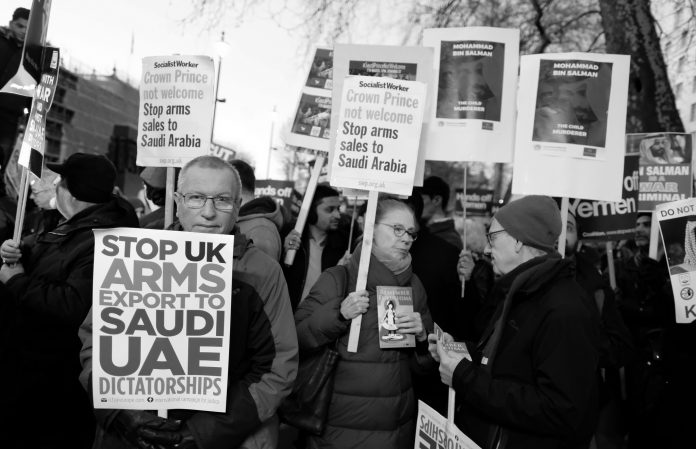The EU member states’ systematic failure to apply EU rules on arms export control should be addressed by a sanctions mechanism, Parliament said on Wednesday.
Despite commonly agreed rules, setting the criteria on who could get an arms export licence, member states have systematically failed to apply them. Parliament is asking for a mechanism to enforce sanctions on EU members that break the rules.
Common rules on arms export are essential to avoid human rights abuses and prevent the use of European weapons against European armed forces, Parliament said.
Saudi Arabia
MEPs have highlighted some particular cases, such as most arms exports to Saudi Arabia getting a green light from EU member states, even though arms exports to the country violated six out of eight criteria, thus undermining the entire European arms control effort. Exported warships helped to reinforce a naval blockade on Yemen, while aircraft and bombs were fundamental to the air campaign, leading to the ongoing suffering of people in Yemen, MEPs note.
They have applauded Germany and the Netherlands, which stopped selling arms to Saudi Arabia, and have criticised member states that have not yet done so.
MEPs also call for an embargo to all other members of the Saudi-led coalition in Yemen.
Da’esh armed with “made in EU”
MEPs say they are “shocked at the amount of EU-made weapons and ammunition found in the hands of Da’esh, in Syria and Iraq” . Under the EU common position, member states must ensure that the export licenses are not diverted to undesirable end-users. However, some EU members, such as Bulgaria and Romania, are failing to apply this provision effectively.
To avoid the risk that the weapons end up in the wrong hands, MEPs call on all member states to “refuse similar transfer in the future, notably to the US and Saudi Arabia”.
The resolution on arms export control was approved by 427 votes to 150, with 97 abstentions.
“Arms exports do not stabilise foreign countries or regions, neither do they help create peace. Arms amplify conflicts. In Yemen, European weapons are fundamentally responsible for the war taking place. The Common Position on arms exports must be implemented effectively. That includes, among others, a sanctions mechanism,” said Rapporteur Sabine Lösing (GUE/NGL, DE).
According to the 19th annual report on arms export, the EU is the second largest arms supplier in the world (27% of global arms export), after the USA (34%) and before Russia (22%). In 2016, 40.5 % of licences for arms exports were granted to countries in the Middle East and North Africa, with Saudi Arabia, Egypt and the United Arab Emirates (UAE) accounting for the bulk of those exports (57.9 billion).
The EU Common Position on arms exports is the only legally binding, region-wide arrangement on conventional arms exports. It lists eight criteria, which member states have to apply when taking a decision on arms export licence.

